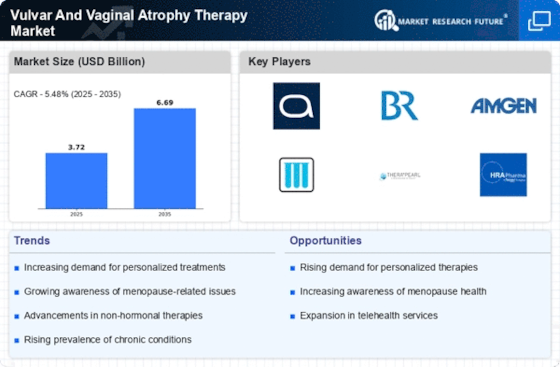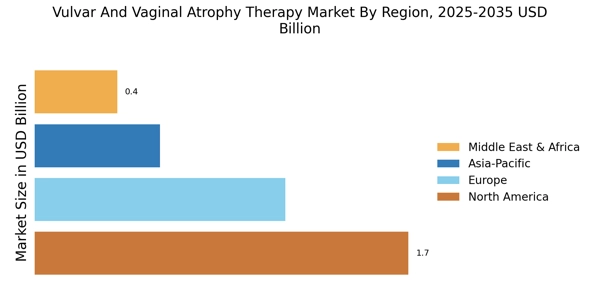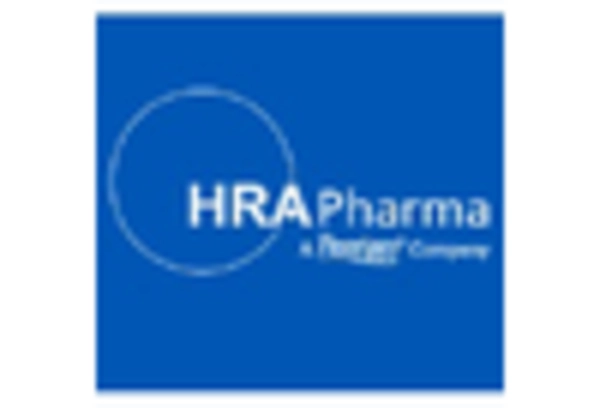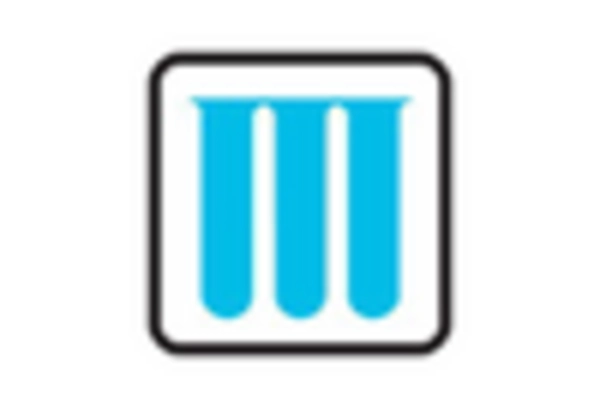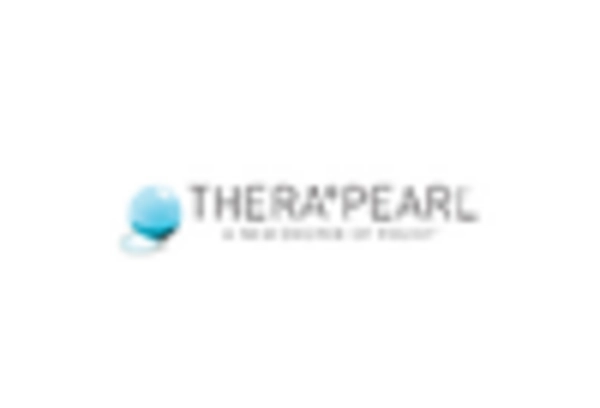Aging Population
The increasing aging population is a pivotal driver for the Vulvar And Vaginal Atrophy Therapy Market. As women age, particularly post-menopausal women, the incidence of vulvar and vaginal atrophy rises significantly. This demographic shift suggests a growing need for effective therapies to address the discomfort and health issues associated with atrophy. According to recent estimates, nearly 50% of post-menopausal women experience symptoms related to vulvar and vaginal atrophy, which underscores the potential market size. The demand for therapies that alleviate these symptoms is likely to escalate, thereby propelling the Vulvar And Vaginal Atrophy Therapy Market forward.
Increased Focus on Quality of Life
The growing emphasis on quality of life among women experiencing vulvar and vaginal atrophy is a significant driver for the Vulvar And Vaginal Atrophy Therapy Market. Women are increasingly prioritizing their health and well-being, seeking therapies that not only alleviate symptoms but also enhance their overall quality of life. This trend is reflected in the rising demand for effective treatments that address both physical discomfort and emotional well-being. As healthcare providers recognize the importance of quality of life in treatment discussions, the market is likely to experience a surge in demand for therapies that align with these values.
Telehealth and Remote Consultations
The rise of telehealth and remote consultations is reshaping the landscape of the Vulvar And Vaginal Atrophy Therapy Market. With the convenience of virtual healthcare, women are more likely to seek help for sensitive issues such as vulvar and vaginal atrophy. Telehealth platforms facilitate discussions that may have previously been avoided in traditional settings, thereby increasing the likelihood of diagnosis and treatment. This shift towards digital healthcare solutions is expected to drive market growth as more women access therapies through telehealth services. The integration of technology into healthcare is likely to enhance patient engagement and adherence to treatment.
Advancements in Treatment Modalities
Innovations in treatment modalities are transforming the Vulvar And Vaginal Atrophy Therapy Market. The introduction of new therapies, including hormonal and non-hormonal options, has expanded the choices available to patients. For instance, the development of localized estrogen therapies and non-hormonal moisturizers has provided alternatives for women who may be hesitant to use systemic treatments. This diversification of treatment options is likely to enhance patient satisfaction and adherence, thereby stimulating market growth. As research continues to unveil new therapeutic approaches, the Vulvar And Vaginal Atrophy Therapy Market is poised for further expansion.
Rising Awareness of Women's Health Issues
There is a notable increase in awareness surrounding women's health issues, particularly those related to vulvar and vaginal atrophy. Educational campaigns and advocacy efforts have contributed to a more informed public, leading to higher rates of diagnosis and treatment seeking. This heightened awareness is expected to drive the Vulvar And Vaginal Atrophy Therapy Market as more women recognize the symptoms and seek appropriate therapies. Furthermore, healthcare providers are increasingly discussing these issues with patients, which may lead to a surge in therapy adoption. The market could see a significant uptick in demand as awareness continues to grow.


